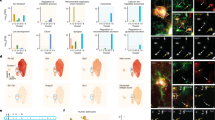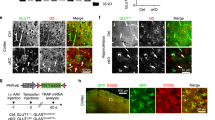Abstract
Pro-oxidant properties of ascorbate have been studied with uses of brain tissues and neuronal cells. Here we address potential mechanism of ascorbate coupling with glutamate to generate oxidative stress, and the role which oxidized ascorbate (dehydroascorbate) transport plays in oxidative neuronal injury. Ascorbate in neurones can be depleted by adding glutamate in culture medium since endogenous ascorbate can be exchanged with glutamate, which enhances ascorbate/ dehydroascorbate transport by depleting ascorbate in the neurons with the glutamate-heteroexchange. However, ascorbate is known readily being oxidized to dehydroascorbate in the medium. Glutamate enhanced the dehydroascorbate uptake by cells via a glucose transporter (GLUT) from extracellular region, and cytosolic dehydroascorbate enhanced lipid peroxide production and reduced glutathione (GSH) concentrations. Iso-ascorbate, the epimer of ascorbate was ineffective in generating the oxidative stress. These observations support the current concept that the high rates of dehydroascorbate transport via a GLUT after the release of ascorbate by glutamate leads to peroxidation, the role of glutamate on ascorbate/ dehydroascorbate recycling being critical to induce neuronal death via an oxidative stress in the brain injury.
Similar content being viewed by others
Article PDF
Author information
Authors and Affiliations
Rights and permissions
This is an Open Access article distributed under the terms of the Creative Commons Attribution Non-Commercial License (http://creativecommons.org/licenses/by-nc/3.0/) which permits unrestricted non-commercial use, distribution, and reproduction in any medium, provided the original work is properly cited.
About this article
Cite this article
Song, J., Shin, S. & Chung, I. Effects of glutamate on dehydroascorbate uptake and Its enhanced vulnerability to the peroxidation in cerebral cortical slices. Exp Mol Med 34, 419–425 (2002). https://doi.org/10.1038/emm.2002.59
Published:
Issue date:
DOI: https://doi.org/10.1038/emm.2002.59
Keywords
This article is cited by
-
High-Dose Vitamin C Prevents Secondary Brain Damage After Stroke via Epigenetic Reprogramming of Neuroprotective Genes
Translational Stroke Research (2022)
-
Dehydroascorbic Acid Promotes Cell Death in Neurons Under Oxidative Stress: a Protective Role for Astrocytes
Molecular Neurobiology (2016)



